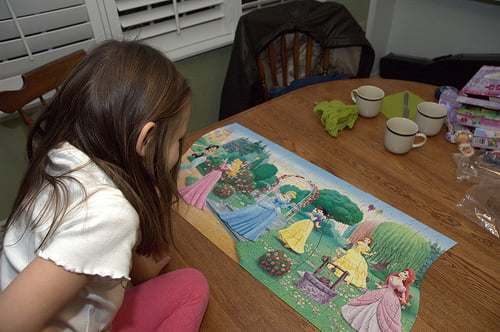Dear DJ Splatz (or whatever you clever name is),
I’ll have to admit that I was somewhat surprised, and pleasantly so, when you called down a young man at our school dance this evening for getting a little out of control. Slinging his shirt around and dancing in an overtly sexual manner, he was clearly out of line at a middle school dance. I commend you for calling chaperons’ attention to it and insisting that he leave the dance. At the time, I thought that such a strong response was entirely called for and set a much-needed example for students, and my opinion of you improved greatly. You later began talking about the need to have “good, clean fun,” and while I thought, “My definition of that term is probably different than yours,” I very much appreciated the sentiment.
The next song you selected for the dancers, though, seemed to negate everything you were trying to accomplish with that warning. I’d never heard the song — for I don’t listen to such trash — but the lyrics of the refrain stood out clearly: “To the window, to the wall, / To the sweat drip down my balls (MY BALLS).” At least that’s the lyrics that lyrics007.com displayed when I Googled “window wall sweat drip balls.”
Really? You’re going to reprimand someone for sexually explicit dancing and then play that song? When I read the rest of the misogynistic lyrics of this piece of garbage, I wondered how producers could have cleaned it up for a radio-ready version, so filled it was with the lowest, most degradingly misogynistic profanity imaginable. Which lyrics do you think were going through their mind as the song played, the radio version or the vile original? Of course, we don’t have to wonder about the lyrics coming out of their mouths, but it is particularly distressing to see a bunch of sixth-, seventh-, and eight-grade girls singing (who are we kidding? it’s rap: it’s merely talking, shouting, or mumbling to a generally-computer-generated beat) shouting about sweat dripping off their — well, you get the picture.
So, in closing, if you find yourself this evening wondering why that boy was dancing like a sex fiend, I’d suggest you review the lyrics of the songs you play.
Sincerely,
A Teacher Who Will Probably Never Let His Daughter Go To A Dance He Doesn’t Personally Chaperone


















 Yet how could anyone argue that it doesn’t give preference Christianity? There are no other freaking choices! I’d have gone for a FSM plate myself, but I don’t think my wife would have appreciated it.
Yet how could anyone argue that it doesn’t give preference Christianity? There are no other freaking choices! I’d have gone for a FSM plate myself, but I don’t think my wife would have appreciated it.


